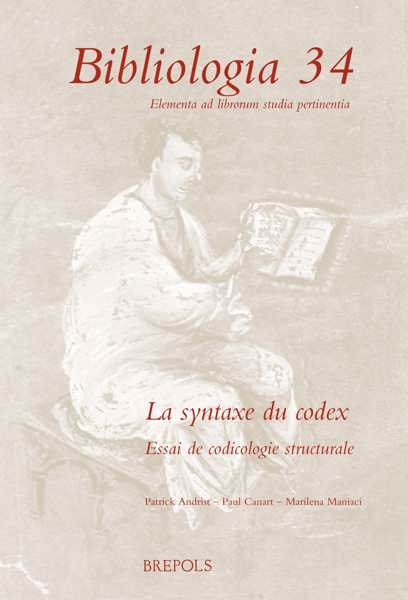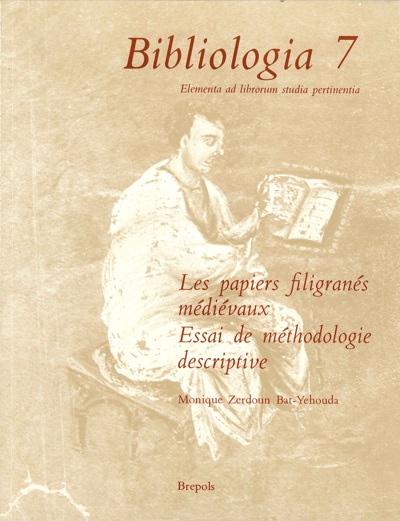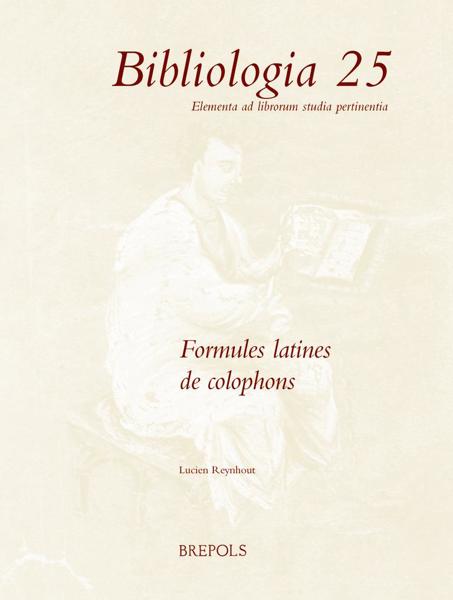
Collecting, Organizing and Transmitting Knowledge
Miscellanies in Late Medieval Europe
Sabrina Corbellini, Giovanna Murano, Giacomo Signore (eds)
- Pages: 262 p.
- Size:216 x 280 mm
- Illustrations:45 b/w
- Language(s):English
- Publication Year:2018
- € 95,00 EXCL. VAT RETAIL PRICE
- ISBN: 978-2-503-56970-3
- Paperback
- Available
Sabrina Corbellini is professor of the chair ‘History of Reading in Premodern Europe’. She specialises in the study of cultural history in late medieval Europe, with a particular focus on the reconstruction of ‘religious literacies’ in the European urban environment.
Giovanna Murano is a paleographer and codicologist. She specialises in the history of the production and use of the medieval book, history of universities and medieval canonical and criminal law.
Giacomo Signore is a doctoral researcher and specialises in medieval philosophy. He explores the issues of composition and use of Latin and vernacular miscellanies in the Late Middle Ages.
Miscellanies may easily make up the single largest group of medieval manuscripts. It was especially in the Late Middle Ages that the number of such multitextual manuscripts, often compiled by lay and religious individuals for personal or communal use, grew substantially. In spite of their relevance for the reconstruction of medieval culture, such manuscripts have not until recently garnered much scholarly interest.
The present volume pinpoints the societal and cultural importance of fourteenth- and fifteenth-century miscellanies as well as their role in the understanding of textual creation, transformation and complexity, in both late medieval and early modern societies. The contributions scrutinise, on the one side, text corpora and textual traditions that had a seminal impact on late medieval European culture: the texts of Geoffrey Chaucer and Reginald Pecock, the manuscripts of Dante’s Commedia, late medieval Italian and Latin poetic anthologies, but also miscellanies from the Council of Basel and multitextual manuscripts containing anti-Hussite texts. On the other side, the volume takes into account individual scribes/compilers and collections: from remarkable cases such as Pico della Mirandola and Leonardo da Vinci, to personal collections made up by lesser-known but not less significant compilers and users. Under a strong pan-European umbrella, the volume embarks on specific problems, among which authorship, non-autonomy, composition, reception and use, along with more general issues such as multilingualism or the relationship between image and text.
Though ubiquitous and complex, miscellanies blend the diverse cultural, economic and social tendencies of their prosumers, thus proving to be tokens of the appropriation of medieval knowledge and providing snapshots of a dynamic textual culture.
Preface
Sabrina Corbellini, Giovanna Murano, Giacomo Signore
Miscellaneous Reflections on the Complexity of Medieval Manuscripts
Marilena Maniaci
A Sensibility of the Miscellaneous? The ‘Canterbury Tales’ of Geoffrey Chaucer and the Works of Reginald Pecock
Ian Johnson
Latin Poetic Anthologies from the Later Middle Ages
Greti Dinkova-Bruun
The Early (Miscellaneous) Manuscripts of Dante’s Divina Commedia
Sandro Bertelli
Different Kinds of Miscellanies Transmitting Medieval Italian Lyric Poetry
Alessio Decaria
Anti-Hussite Texts in Miscellaneous and Other Manuscripts: The Case of the Erfurt Charterhouse
Pavel Soukup
Manuscript Miscellanies from the Council of Basel (1431-49)
Thomas Woelki
Pursuing the Truth: The Czech Lay Theologian Thomas of Štítné (c. 1330-c. 1400) and his Delight in Doing Miscellanies
Pavlina Rychterova
Miscellaneity, Compiling Strategies and the Transmission of The Chastising of God’s Children and The Holy Boke Gratia Dei
Marleen Cré
Composition and Career: The Composite Manuscripts of Johannes Sintram, O.F.M.
Kimberly Rivers
Bridging Academic and Monastic Knowledge: The Religious Miscellanies of Albert Löffler, O.P. (with a Description of the Codex Basel, ÖBU, A I 20)
Giacomo Signore
Late Medieval Personal Miscellanies: The Case of Mattheus Beran (d. 1461), Augustinian Canon of Roudnice nad Labem
Lucie Doležalová
The Composition of Manuscript Miscellanies within Religious Communities: Between Reform-Minded Piety and Humanist Rhetoric
Angelika Kemper
Inspecting Inventories: Miscellanies and Composite Volumes in Pico’s Library
Giovanna Murano
Leonardo da Vinci: The Books
Marco Cursi




